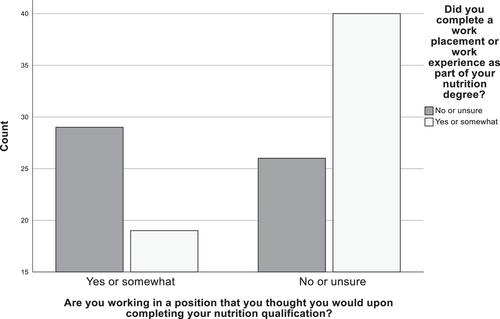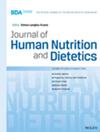Nutrition employability and graduate readiness: The Australian Working in Nutrition study
Abstract
Background
Nutrition science graduates contribute to the nutrition workforce by bringing specialist knowledge and skills needed to address future food challenges. This study aims to provide a snapshot of the current employment landscape for nutrition science graduates in Australia and how well their degrees prepare them for employment.
Method
A cross-sectional survey of Australian tertiary nutrition graduates was conducted to explore tertiary training, employment pathways and their perceived preparedness for practice.
Results
This study included a final sample of 119 graduates from 17 Australian tertiary institutions. Almost two-thirds of respondents had completed further training. Most graduates (77%, n = 91) had worked in a food, nutrition science or health-related role after their degree; the most frequently cited employment settings were government or public health organisations; research, not-for-profit or nongovernment organisations; and the food industry. Work-integrated learning was identified as a key predictor of graduates working in a role that differed from their expectations as a student. The skill categories developed during nutrition training that were most valued in the workplace included nutrition and scientific knowledge, and professional and communication skills.
Conclusions
This study offers first insights into the current employment landscape for nutrition graduates across Australia. Findings show that current nutrition science professionals are highly qualified and prepared to navigate the evolving demands of nutrition practice. Regular review of graduate employment will inform nutrition science curriculum to enable graduates to be well equipped in the face of dynamic practice settings.



 求助内容:
求助内容: 应助结果提醒方式:
应助结果提醒方式:


